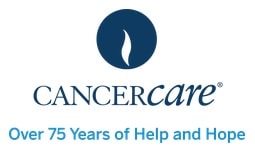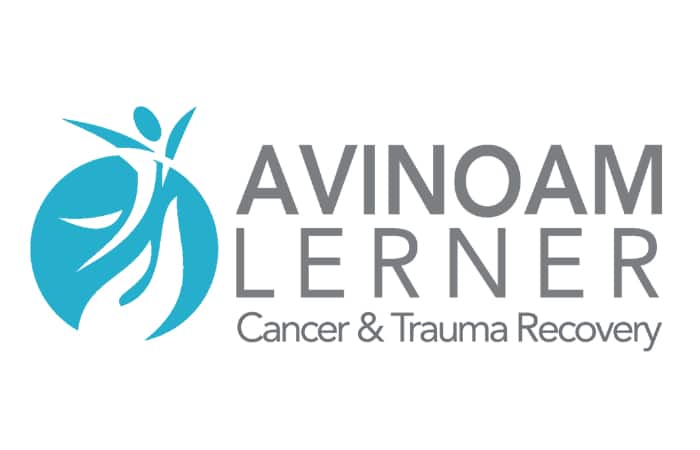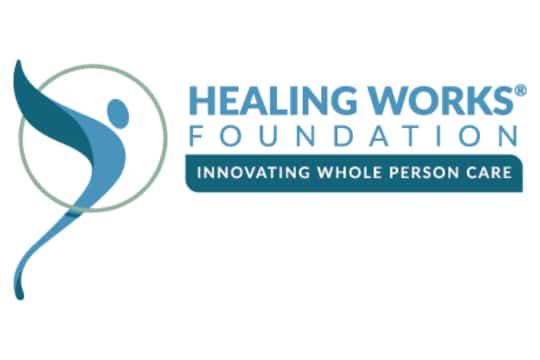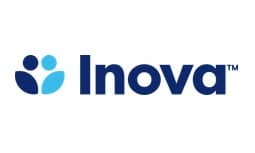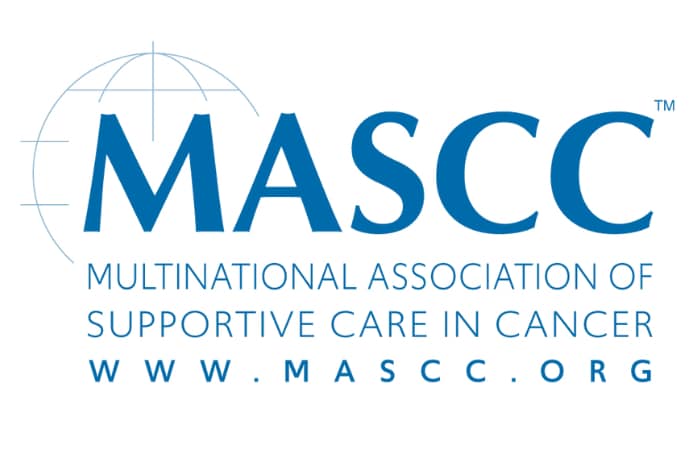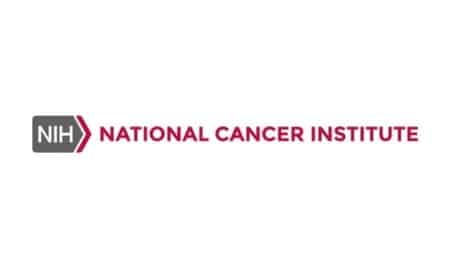Fatigue at a glance
Fatigue goes beyond feeling tired from missing a night of sleep. Fatigue can keep you not only from recreational activities you enjoy but also from working or providing care for children, elders, pets, or others in your life. Fatigue can keep you from taking care of your own basic needs, such as preparing meals, overseeing your well-being, and paying bills. It can also interfere with your ability to socialize with the people you need for support, isolating you when you most need help and companionship. Cancer-related fatigue can impair your quality of life, but several therapies can provide relief.
Fatigue: overview
What is fatigue?
Fatigue as a symptom of cancer or side effect of treatment goes well beyond simply feeling temporarily tired or worn out, such as from a sleepless night. Some describe it as “unexplained, persistent, and relapsing exhaustion,”1Fatigue and Exhaustion: Causes, Symptoms, and Treatment. Web MD. October 4, 2023. Viewed June 13, 2024. and it “lasts longer, is more profound and isn’t relieved by rest.”2Mayo Clinic staff. Fatigue. Mayo Clinic. December 2, 2020. Viewed May 11, 2022.
Fatigue and cancer
Cancer-related fatigue (CRF) is one of the most common side effects of having cancer and receiving cancer treatment. Physical, mental, and emotional challenges all feed into CRF. CRF can affect all facets of a person’s quality of life.3Bower JE, Lacchetti C et al. Management of fatigue in adult survivors of cancer: ASCO-Society for Integrative Oncology guideline update. Journal of Clinical Oncology. 2024 May 16:JCO2400541.
Fatigue is linked to pain, which may work in both directions—each can trigger and enhance the other.4Theobald DE. Cancer pain, fatigue, distress, and insomnia in cancer patients. Clinical Cornerstone. 2004;6 Suppl 1D:S15-21. If you are experiencing pain in addition to fatigue, we recommend you visit our Pain › handbook to explore therapies and practices that may help with your pain, which may also help reduce your fatigue.
In extreme cases, fatigue may cause a person with cancer to stop treatment. Managing fatigue may allow you to complete treatment to achieve its full benefits as well as maintain a higher quality of life.
Fatigue is linked to lower immune function,5Levy SR, Herberman ML et al. Correlation of stress factors with sustained depression of natural killer cell activity and predicted prognosis in patients with breast cancer. Journal of Clinical Oncology. 1987 Mar;5(3):348-53. a body terrainthe internal conditions of your body, including nutritional status, fitness, blood sugar balance, hormone balance, inflammation and more factor linked to worse cancer outcomes.
Caregiver fatigue
Caregivers can also experience fatigue. Caregiver fatigue occurs when the caregiver feels physically, emotionally, and psychologically exhausted, often leading to a change in attitude. Some practices and approaches are recommended specifically for caregivers. Within our Caregiver Handbook, see the section Finding support for yourself ›
What can cause fatigue?
Many factors may trigger or worsen fatigue among people with cancer.
Medical or emotional conditions
Illnesses including cancer, autoimmunea situation in which the body's immune system mistakes its own healthy tissues as foreign and attacks them illnesses such as rheumatoid arthritis and systemic lupus, fibromyalgia, or chronic fatigue syndrome
Infection
Mental health issues, such as depression › or anxiety ›
Grief
Metabolic or hormone imbalances
Pain ›6Charalambous A, Giannakopoulou M, Bozas E, Paikousis L. Parallel and serial mediation analysis between pain, anxiety, depression, fatigue and nausea, vomiting and retching within a randomised controlled trial in patients with breast and prostate cancer. BMJ Open. 2019 Jan 24;9(1):e026809; Theobald DE. Cancer pain, fatigue, distress, and insomnia in cancer patients. Clinical Cornerstone. 2004;6 Suppl 1D:S15-21; de la O Murillo A, Torres AC et al. Association of pain with the presence of additional supportive care (SC) needs in patients with advanced cancer. Journal of Clinical Oncology. 2022 Jun 1;40(16_suppl):e24071-e24071; Solvik E, Ytrehus S, Utne I, Grov EK. Pain, fatigue, anxiety and depression in older home‐dwelling people with cancer. Nursing Open. 2019 Nov 5;7(1):430-438; Spiegel D, Sands S, Koopman C. Pain and depression in patients with cancer. Cancer. 1994 Nov 1;74(9):2570-8.
Inflammation7Wang A, Ling Z et al. Gut microbial dysbiosis may predict diarrhea and fatigue in patients undergoing pelvic cancer radiotherapy: a pilot study. PLoS One. 2015 May 8;10(5):e0126312.
Low red blood cell counts from chemotherapy
Sleep apnea
Deficiency of iron, vitamin B12, or vitamin D ›
Low thyroid function
Lifestyle behaviors
Unhealthy eating habits ›
Too much caffeine
Medications
Cancer treatments such as radiation therapy, surgery, and some drugs, hormone therapies, and immunotherapies
Aspirin › or other nonsteroidal anti-inflammatory drugs › such as ibuprofen (Advil) or naproxen (Aleve)
Some diabetes medications can cause lower vitamin B12 levels, which can contribute to fatigue; consider asking your doctor to test your levels if you are taking diabetes medications
Antihistamines
Cough medicines
Sedatives
Other therapies
What are signs or symptoms of fatigue?
Signs & symptoms of cancer-related fatigue:8Cancer Fatigue. Cleveland Clinic. September 8, 2021. Viewed May 24, 2022; Cancer-Related Fatigue. Moffitt Cancer Center. July 15, 2015. Viewed May 24, 2022.
Chronic tiredness or sleepiness unrelieved by a good night’s sleep
Whole body tiredness
Stiff shoulders
Decreased energy or lack of energy
Inability to concentrate
Weakness or malaise
Boredom or lack of motivation
Sleepiness
Increased irritability
Nervousness, anxiety, or impatience
Top evidence-based practices and therapies for managing fatigue
SIO-ASCO clinical practice guidelines recommendations
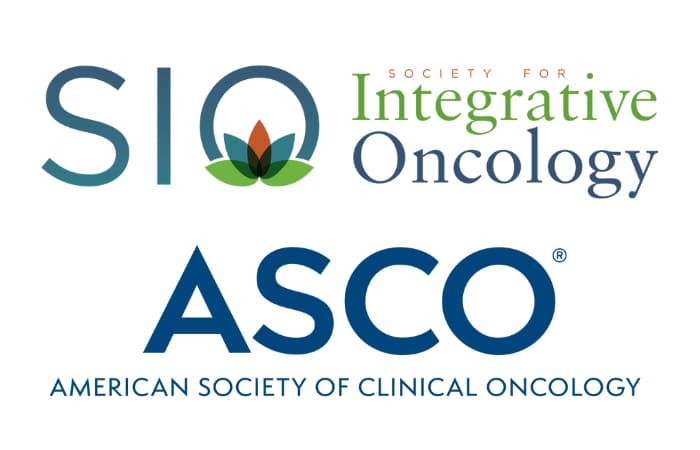
In 2024, the Society for Integrative Oncology and the American Society of Clinical Oncology published Management of Fatigue in Adult Survivors of Cancer: ASCO–Society for Integrative Oncology Guideline Update ›
These recommendations are based on a rigorous review of a high level of evidence. Therapies are recommended in the guidelines for different phases of cancer treatment. Each of these therapies is also recommended in at least one other clinical practice guidelines.9Survivorship Care for Cancer-Related Late and Long-Term Effects. National Comprehensive Cancer Network Guidelines for Patients. 2024. Viewed June 4, 2024; Gowin K, Muminovic M et al, Mehta A. Integrative therapies in cancer care: an update on the guidelines. American Society of Clinical Oncology Educational Book. 2024 Jun;44(3):e431554; Campbell KL, Winters-Stone KM et al. Exercise guidelines for cancer survivors: consensus statement from International Multidisciplinary Roundtable. Medicine and Science in Sports and Exercise. 2019 Nov;51(11):2375-2390; Fabi A, Bhargava R et alI; ESMO Guidelines Committee. Cancer-related fatigue: ESMO clinical practice guidelines for diagnosis and treatment. Annals of Oncology. 2020 Jun;31(6):713-723; Greenlee H, DuPont-Reyes MJ et al. Clinical practice guidelines on the evidence-based use of integrative therapies during and after breast cancer treatment. CA: A Cancer Journal for Clinicians. 2017 May 6;67(3):194-232 (this set of guidelines has been endorsed by the American Society of Clinical Oncology (ASCO): Lyman GH, Greenlee H et al. Integrative therapies during and after breast cancer treatment: ASCO endorsement of the SIO clinical practice guideline. Journal of Clinical Oncology. 2018 Sep 1;36(25):2647-2655); Bower JE, Bak K et al; American Society of Clinical Oncology. Screening, assessment, and management of fatigue in adult survivors of cancer: an American Society of Clinical Oncology clinical practice guideline adaptation. Journal of Clinical Oncology. 2014 Jun 10;32(17):1840-50;
Download the SIO and CancerChoices Integrative Oncology eBook ›
Both during and after treatment
- Exercise (aerobic, resistance, or combination) should be tailored according to the individual patient’s abilities and may be either supervised or unsupervised. Finding a way to move your body, even gentle stretching, can help to lessen fatigue. See How to Move More ›
- Cognitive behavioral therapy (CBT), either with or without hypnosis, is a therapy method designed to change negative thought patterns and behaviors to improve emotional and physical well-being.10Mayo Clinic Staff. Cognitive behavioral therapy. Mayo Clinic. Viewed June 4, 2024. Learn more about CBT and find a practitioner › or learn more about hypnotherapy for cancer ›
- Mindfulness-based programs, including mindfulness-based stress reduction (MBSR) promote relaxation and stress reduction through practices like meditation and deep breathing. See Relaxation Techniques and Mindfulness Practices: Coping With Cancer › from CancerCare. Find mindfulness practices for people with cancer ›
During treatment
- Tai chi or qigong are forms of mind-body exercise and meditation, practiced at a low to moderate intensity. See Tai Chi or Qigong ›
- Psychoeducation about side effects, such as fatigue, may be offered in an oncology clinic to individuals before beginning treatment.11Marschall A. How psychoeducation is used in therapy. VeryWell Mind. May 22, 2023. Viewed June 4, 2024.
- American ginseng, Panax quinquefolius, an herbal supplement used in traditional medicine and by naturopathic oncologists is recommended at 2,000 mg daily. See Ginseng (American) › from About Herbs.
After treatment
- Yoga is a mind-body practice that includes breath control, meditation, and physical postures. See Yoga: affordability and access ›
- Acupressure is the application of pressure to specific places on your body. See Acupressure: affordability and access ›
- Moxibustion is the practice of burning a special herb to apply heat close to the skin at specific points. See Moxibustion: affordability and access ›
Recommendation against use; should be avoided
The guidelines recommend against use of these therapies due to a lack of effect in clinical trials.
- Wakefulness agents
- L-carnitine
- Psychostimulants
- Antidepressants
Other practices and therapies
We present approaches to reducing fatigue backed by modestsignificant effects in at least three small but well-designed randomized controlled trials (RCTs), or one or more well-designed, mid-sized clinical studies of reasonably good quality (RCTs or observational studies), or several small studies aggregated into a meta-analysis (this is the CancerChoices definition; other researchers and studies may define this differently), goodsignificant effects in one large or several mid-sized and well-designed clinical studies (randomized controlled trials (RCTs) with an appropriate placebo or other strong comparison control or observational studies that control for confounds) (this is the CancerChoices definition; other researchers and studies may define this differently), or strongconsistent, significant effects in several large (or at least one very large) well designed clinical studies or at least two meta-analyses of clinical studies of moderate or better quality (or one large meta-analysis) finding similar results (this is the CancerChoices definition; other researchers and studies may define this differently) evidence of effectiveness.
If your fatigue is a symptom of other medical conditions, you may need to seek treatment to address the cause of your fatigue to find relief.
Conventional treatment
Your doctor may be able to determine if any of the medical conditions or medications listed above (or others) may be causing your fatigue and recommend treatments, such as for insomnia or infection.
Lifestyle practices
- Eating Well: A diet, such as a Mediterranean diet, rich in fruits, vegetables, whole grains, and omega-3 fatty acids may lead to less fatigue. Including a colorful array of fruits and vegetables makes for a diet rich in polyphenols and antioxidants, which can contribute to less fatigue. Fasting or restricting calories before and/or after chemotherapy treatments may possibly lead to less fatigue.12Pole L, Hepp N. How can Eating Well help you? What the research says. CancerChoices. April 14, 2024. Eating well is recommended in one practice guideline for managing fatigue.13Survivorship Care for Cancer-Related Late and Long-Term Effects. National Comprehensive Cancer Network Guidelines for Patients. 2024. Viewed June 4, 2024. See How to Eat Well ›
Complementary therapies
Supplements and natural products
- Astragalus-based Chinese botanicals: People treated with astragalus-based Chinese botanical formulas showed substantially less fatigue during chemotherapy.14Williams M, Hepp N, Pole L. How can astragalus help you? What the research says. CancerChoices. May 10, 2024. See Traditional medicine and professionals ›
- Melatonin is a hormone and supplement that regulates sleep cycles. People treated with melatonin during radio/chemotherapy have shown less fatigue. People with advanced metastatic cancer have also shown less weakness or lack of energy when treated with melatonin.15Hepp N. How can melatonin help you? What the research says. CancerChoices. May 29, 2024. See Melatonin: affordability and access ›
- Mistletoe is a plant extract formulated for injections or infusions. People with cancer treated with mistletoe have shown less fatigue.16Hepp N. How can mistletoe help you? What the research says. CancerChoices. May 28, 2024. See Mistletoe: affordability and access ›
- Vitamin C: intravenous use: People with cancer treated with intravenous vitamin C have shown less fatigue during conventional cancer treatment.17Hepp N, Pole L. How can intravenous vitamin C help you? What the research says. CancerChoices. April 12, 2024. See Vitamin C: Intravenous Use: affordability and access ›
Other complementary therapies
- Acupuncture is a practice of inserting fine needles into the body at specific points. People treated with acupuncture have shown less fatigue, including during cancer treatment.18Hepp N. How can acupuncture help you? What the research says. CancerChoices. May 29, 2024. Acupuncture is recommended for managing fatigue in several practice guidelines.19Bower JE, Bak K et al; American Society of Clinical Oncology. Screening, assessment, and management of fatigue in adult survivors of cancer: an American Society of Clinical oncology clinical practice guideline adaptation. Journal of Clinical Oncology. 2014 Jun 10;32(17):1840-50; Survivorship Care for Cancer-Related Late and Long-Term Effects. National Comprehensive Cancer Network Guidelines for Patients. 2024. Viewed June 4, 2024; Greenlee H, DuPont-Reyes MJ et al. Clinical practice guidelines on the evidence-based use of integrative therapies during and after breast cancer treatment. CA: A Cancer Journal for Clinicians. 2017 May 6;67(3):194-232 (this set of guidelines has been endorsed by the American Society of Clinical Oncology (ASCO): Lyman GH, Greenlee H et al. Integrative therapies during and after breast cancer treatment: ASCO endorsement of the SIO clinical practice guideline. Journal of Clinical Oncology. 2018 Sep 1;36(25):2647-2655); Deng GE, Frenkel M et al; Society for Integrative Oncology. Evidence-based clinical practice guidelines for integrative oncology: complementary therapies and botanicals. Journal of the Society for Integrative Oncology. 2009 Summer;7(3):85-120. See Acupuncture: affordability and access ›
- Energy therapies effective for managing fatigue include biofield energy therapies or subtle energy therapies using touch, stimulation, or non-touch energy from a therapist. People with cancer treated with Reiki have shown less fatigue in several studies.20Hepp N, Pole L. How can Reiki help you? What the research says. CancerChoices. November 25, 2024. Such energy therapies are recommended in one practice guideline for managing fatigue.21Deng GE, Frenkel M et al; Society for Integrative Oncology. Evidence-based clinical practice guidelines for integrative oncology: complementary therapies and botanicals. Journal of the Society for Integrative Oncology. 2009 Summer;7(3):85-120. See pages on affordability and access for these therapies: Therapeutic Touch® ›, healing touch ›, Reiki ›, or polarity therapy ›
- Relaxation techniques include several techniques that often bring your attention to your breathing, muscles, or other body functions to relax and calm them. People treated with progressive muscle relaxation have shown less fatigue during chemotherapy, and people treated with relaxation techniques have shown less fatigue after surgery or stem cell transplant.22Hepp N. How can relaxation techniques help you? What the research says. CancerChoices. May 29, 2024. See Relaxation techniques: affordability and access ›
Recommendation against use; should be avoided
Two natural products have recommendations against use for fatigue during cancer treatment in a practice guideline due to a lack of effect in clinical trials.23Greenlee H, DuPont-Reyes MJ et al. Clinical practice guidelines on the evidence-based use of integrative therapies during and after breast cancer treatment. CA: A Cancer Journal for Clinicians. 2017 May 6;67(3):194-232 (this set of guidelines has been endorsed by the American Society of Clinical Oncology (ASCO): Lyman GH, Greenlee H et al. Integrative therapies during and after breast cancer treatment: ASCO endorsement of the SIO clinical practice guideline. Journal of Clinical Oncology. 2018 Sep 1;36(25):2647-2655.).
- Acetyl-L-carnitine
- Guarana
Healing stories

A retreat from the city brought an opportunity to find rest.
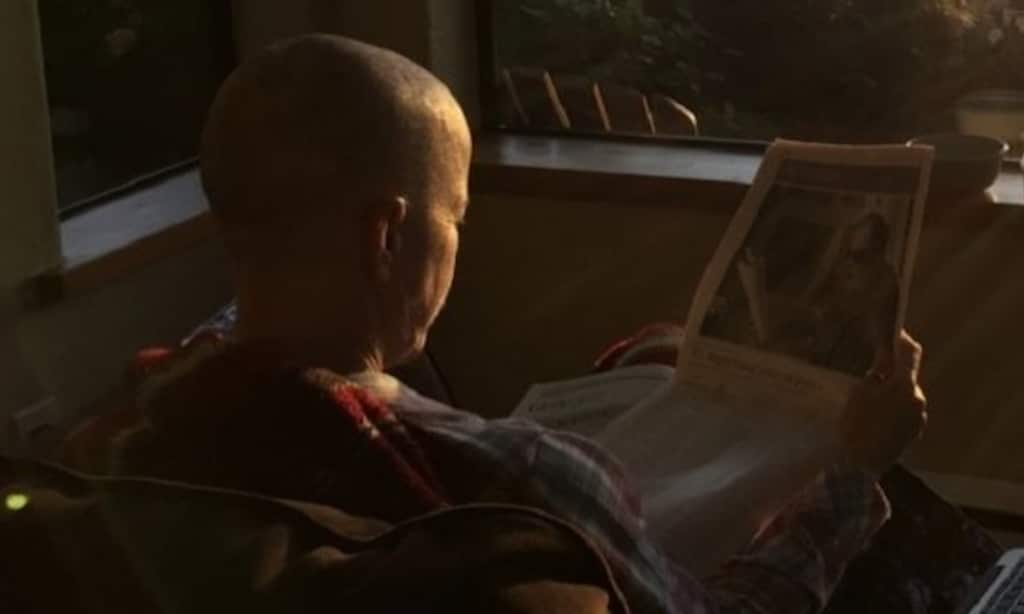
Janie Brown: The Power of the Integrative Approach in Breast Cancer Treatment ›
A powerful story of using an integrative approach to prevent and manage fatigue and other side effects of cancer treatment.

Barbara Wolf Terao: Yew and Me ›
Discovering support from her community, and from deep within, she found her way through unexpected extreme fatigue from chemotherapy.
Additional helpful links
Resources to explore practices and therapies to manage fatigue
Exercise
Cognitive behavioral therapy

Find a Therapist, Psychologist, Counselor ›
Select your state > All Filters > scroll to Types of Therapies > Cognitive Behavioral Therapy (CBT)
Free meditation videos
Mindfulness courses
For health professionals
Practice guidelines for professionals
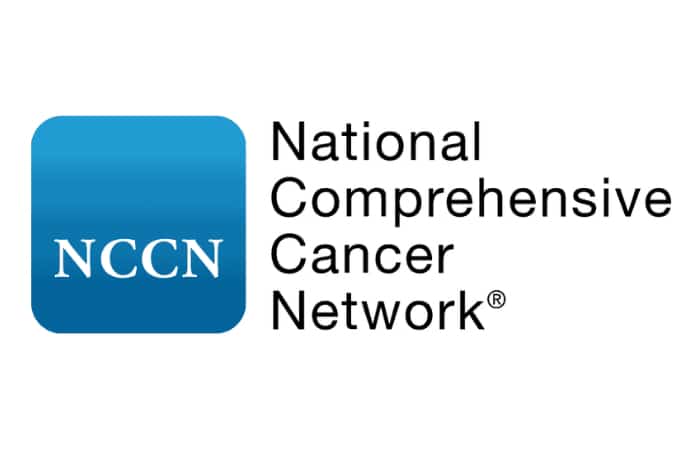
Registration with a free account is required for access:
NCCN Guidelines Version 2.2024: Cancer-Related Fatigue ›
NCCN Guidelines Version 1.2024: Survivorship › (Recommendations for fatigue begin on page 95)
Links for health professionals
Ng JY, Zhang CJ, Ahmed S. Dietary and herbal supplements for fatigue: a quality assessment of online consumer health information. Integrative Medicine Research. 2021 Dec;10(4):100749.
Henson LA, Maddocks M et al. Palliative care and the management of common distressing symptoms in advanced cancer: pain, breathlessness, nausea and vomiting, and fatigue. Journal of Clinical Oncology. 2020 Mar 20;38(9):905-914.
Learn more
References


